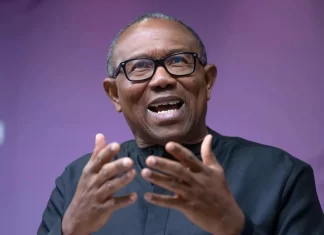By Ejike Anyaduba
With access to improved social and natural resource infrastructure as the new community development focus of many a state in Nigeria, the Anambra state government in partnership with the World Bank has seized the initiative to make a lot of positive interventions in communities around the state.
Under the auspice of the Community and Social Development Agency (CSDA), it was able to determine, using the State Poverty Map, twelve focal local government councils of Awka North, Anambra East, Anambra West, Ayamelum, Orumba North, Dunukofia, Orumba South, Anaocha, Oyi, Ogbaru, Idemili North and Ihiala and positively altered development in 53 communities and among 16 vulnerable groups within them.
Established March 19, 2009, through an enactment by the State House of Assembly, the Agency did not take off immediately until August 1, 2018. It was literally in limbo for nearly almost a decade. But by March 2019, when it started community implementation, it was able to record breathtaking achievements, paling every other Agency in comparison. In fact, few, if any, can stake greater claims to improved community development than the CSDA.
It is right to argue that but for the responsive Willie Obiano administration which rustled up the statute, establishing the Agency and empanelled the board, the Agency would have come in vain. At best it will still be existing in outline.
Led by the traditional ruler of Nteje in Oyi local government council Chief Rowland Odegbo and managed by Mr. Chudi Mojekwu, who had had a taste of management at the State FADAMA project, the Agency has made appreciable impact in improving development in the focal communities. It has, with its pro-poor intervention projects in the select communities, successfully reduced poverty in those places and empowered the people.
Perhaps the Agency is able to navigate the process of community development and achieved as much as it has done because its activities are in sync with the Community-Choose-Your-Project program of the Obiano administration. The Obiano’s development model which is novel in concept and unique on impact encourages the work of the Agency and allows for ease of intervention. The Agency does not have to belabor otherwise excessively complicated administrative procedure that often impedes development at that level.
So far the Agency has made far reaching interventions in very many communities within the focal local council areas. It has received expression of interest from well over a hundred communities and about twenty-five vulnerable groups in the state and made interventions in fifty three communities and sixteen vulnerable groups. These interventions are made in about seven key sectors of the economy like education, environment, health, water resources, rural transportation, rural electrification, and socio-economic activities.
However, no intervention is made without recourse to the communities which reserve the right of choice of projects they host. Interestingly, what the Agency does is not any different from what the state is doing with the Community-Choose-Your-Project initiative of the government. The Agency empowers the communities by giving them resources and the authority to use them responsibly. The communities plan, part-finance, implement, monitor, and maintain sustainable and socially inclusive multi-sectoral micro projects.
Apart from its pro-poor intervention projects and the empowerments it has made, the Agency has approved forty-one Community Development Plans, sixteen Group Development Plans, containing about two hundred and three Micro projects from the seven approved sectors. It is expected that these plans may come in handy for use by the state in her effort to improve lives in the rural communities. The Agency has also completed a hundred and sixty-nine micro projects with about two million five hundred and fifty-nine thousand, four hundred and forty beneficiaries. By the same token, about five hundred and forty temporal jobs, direct and indirect, were also created by the Agency.
To the credit of the Obiano government, keying into the World Bank assisted projects has redefined development of some critical sectors of the rural economies. It has also given the communities, hitherto without opportunities, access to improved social and economic infrastructure. Those without access roads, clean water supply, electricity, skill acquisition centres, health centres, schools, markets, flood control etc have since been provided them.
Issue of social responsibility did not receive less attention from the Agency. Sensitization on protocols observation for the Covid-19 pandemic was not left out and is being carried on in the communities with as much commitment as the empowerment program. Ditto for psychosocial support given to care-seekers and victims of various kinds of trauma, including gender-based violence, domestic violence, rape, sexual abuse, herdsmen attack etc. None of the victims is left without some succour.
The Agency is not without a few challenges. Funding of the projects has slowed down due to the Covid-19 pandemic which compelled a stay-at-home regime. There is also the issue of managing the huge number of expression of interest from the communities without commensurate funding because of budgetary and time constraints. Implementations are also faced with threat of rains and flooding.
Regardless, with what the Agency has achieved within its short period of existence it is being positioned to be the consolidation and institutionalization Agency for the Government community and social development interventions. A synergy between the Agency and the Community-Choose-Your-Projects Initiative of the Obiano administration promises to obliterate traces of poverty in virtually all the poor communities in the state.
Ejike Anyaduba writes from Abatete, Anambra State














